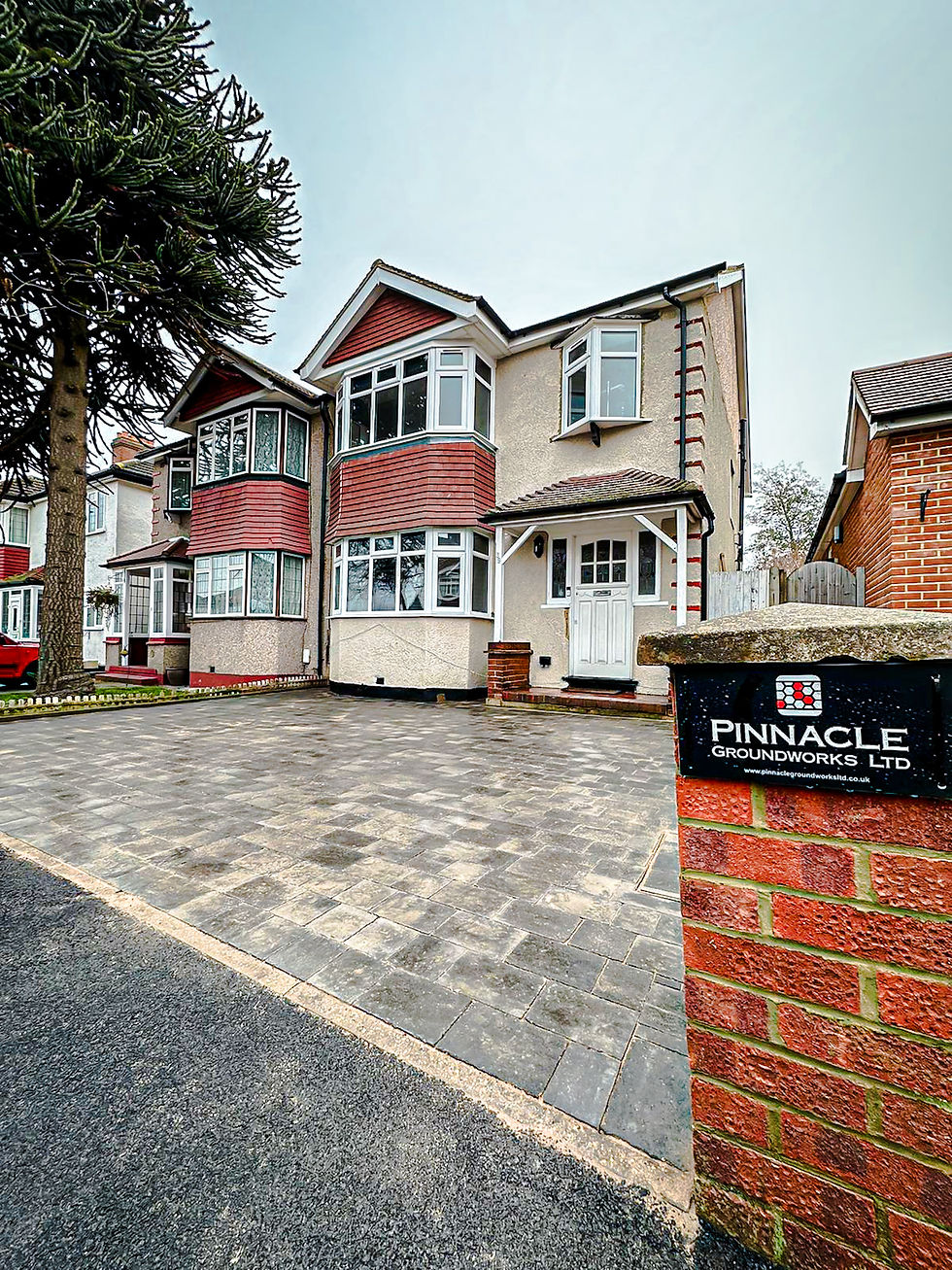Permeable Block Paving: A Solution for Driveways and Sustainable Urban Drainage Systems (SUDs)
- Aiden McDonnell

- Nov 16, 2023
- 2 min read
When it comes to driveways, functionality, aesthetics, and environmental impact are key considerations for homeowners and property developers. Traditional driveways made of impermeable materials like concrete or asphalt have been the norm for decades. However, in recent years, there has been a growing interest in alternative options that not only serve their purpose but also contribute positively to the environment. Enter permeable block paving—a sustainable solution that offers numerous benefits for driveways while aiding in compliance with Sustainable Urban Drainage Systems (SUDs) regulations.

What is Permeable Block Paving?
Permeable block paving refers to a type of driveway surface made from blocks or bricks arranged in a pattern over a permeable sub-base. The blocks have small gaps between them, allowing water to infiltrate the surface and percolate through to the underlying ground, unlike impermeable surfaces that cause water runoff. Some options also allow water to pass through the concrete blocks themselves at a quicker rate, meaning water is absorbed into the ground a lot more quickly.
Benefits of Permeable Block Paving for Driveways:
1. Effective Water Drainage:
One of the primary advantages of permeable block paving is its ability to manage water effectively. It allows rainwater to filter through the surface, reducing surface water runoff and lessening the risk of flooding in urban areas.
By facilitating natural drainage, it helps replenish groundwater levels and reduce the burden on traditional drainage systems.
2. Sustainability and Environmental Impact:
Permeable block paving contributes to sustainability by supporting natural water cycles. It minimises pollution by filtering rainwater, removing pollutants and contaminants before they enter natural water sources.
The reduction in surface runoff also helps in preserving local ecosystems by maintaining natural water flow and reducing soil erosion.
3. Durability and Maintenance:
These paving blocks are durable and can withstand heavy loads, making them suitable for driveways. They require minimal maintenance compared to traditional surfaces, as any debris can be easily cleared from the surface.
Additionally, their modular design allows for easy replacement of damaged blocks without disturbing the entire driveway.
4. Enhanced Aesthetics and Customisation:
Permeable block paving offers a wide range of design options, allowing homeowners to create unique patterns, colours, and textures to complement their property's aesthetics.
The variety of available materials and patterns offer versatility in design, enhancing the overall appeal of the driveway.
SUDs Compliance:
SUDs regulations aim to manage surface water runoff in urban areas by promoting the use of techniques that mimic natural drainage. Permeable block paving aligns perfectly with these regulations by providing a sustainable solution for managing rainwater on residential and commercial properties. Implementing this type of paving can aid in compliance with SUDs guidelines, ensuring that developments contribute positively to local drainage infrastructure.
Conclusion:
Permeable block paving for driveways offers a host of benefits that go beyond traditional surfacing materials. Its ability to manage water effectively, minimise environmental impact, and comply with SUDs regulations makes it an attractive choice for homeowners and developers looking to create sustainable, visually appealing, and functional driveways.
As the world continues to prioritise sustainability and environmental responsibility, permeable block paving stands as a shining example of an eco-friendly solution that combines practicality with aesthetics, transforming the way we approach driveway construction for a greener, more sustainable future.




Comments